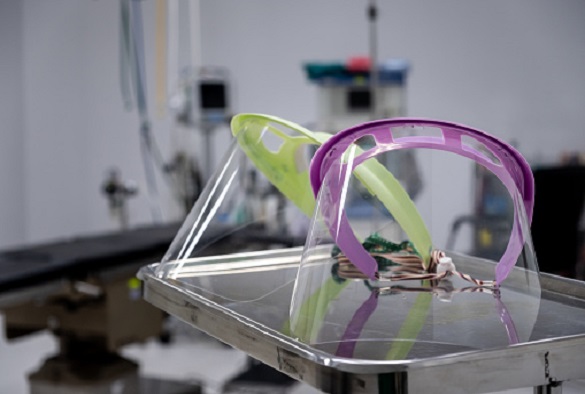Researchers to develop anti-Covid-19 coating for PPE
Published on

Researchers at the University of Liverpool have been awarded £615k funding from UKRI to develop a new antiviral coating for PPE to protect healthcare workers from Covid-19.
Led by Dr Raechelle D'Sa and supported by Dr Jenny Hanson, from the University's School of Engineering, the project aims to develop a new coating with antiviral and antifouling properties that can be readily applied to PPE surfaces, such as face visors.
The project will also investigate how long the Covid-19 virus survives on visors and antiviral coated visors under a wide range of conditions in order to better understand how to minimise the transmission of infection.
Covid-19 is transmitted by infectious individuals through large respiratory droplets generated by coughing, sneezing or speaking which can also survive on surfaces. Whilst PPE plays a crucial role in interrupting the transmission of Covid-19, research has found that a high level of viral load and the process of putting PPE on and taking it off presents an increased risk of covid-19 transmission.
The disposal of contaminated PPE also presents a further transmission risk as does growing concern regarding single use PPE and its impact on the environment.
Dr Raechelle D'Sa, an expert in the design of antimicrobial materials and therapeutics, said: “This project will use our expertise to produce an innovative new antiviral and antifouling coating which can be used on PPE to protect staff working in healthcare settings.”
“This is a potential low cost technology solution, that once proven can be taken forward in a relatively short timescale to provide additional protection from Covid-19 to healthcare workers.”
The project is funded by the UKRI COVID19 Rapid Response Call that supports research and innovation that address problems related to COVID-19.
The project involves co-investigators from the Liverpool School of Tropical Medicine, Liverpool University Hospitals NHS Trust, and the University of Toronto.